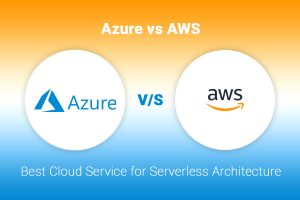 Like bees swarming over honey, more and more enterprises worldwide are repositioning their businesses to depend on cloud computing platforms as they prefer as-a-service providers over conventional vendors. This has in turn accelerated digital transformation projects and facilitated uninterrupted flow of work even during multiple lockdowns witnessed around the world on account of the pandemic.
Like bees swarming over honey, more and more enterprises worldwide are repositioning their businesses to depend on cloud computing platforms as they prefer as-a-service providers over conventional vendors. This has in turn accelerated digital transformation projects and facilitated uninterrupted flow of work even during multiple lockdowns witnessed around the world on account of the pandemic.
Enterprises are steadily increasing their IT budgets to accommodate multiple cloud computing platforms, as a result of which business behemoths that provide fast, secure, and reliable cloud storage infrastructure are raking in the moolah. Recent statistics indicate that Microsoft Azure services and AWS services (Amazon Web Services) are gaining more and more traction in a world where businesses want their data available on the go.
The espousal of cloud computing platforms is a key driving force for businesses today, as applications are shifted from on-campus data centres in a bid to be agile, reduce costs and make the most of latest technological advancements. Infrastructure-as-a-service (IaaS) as a model is fast becoming the go-to solution for businesses, in which a vendor hosts and maintains the critical infrastructure, including hardware, software, servers and storage.
It also includes putting up applications in a scalable ecosystem, where customers are charged for the infrastructure they use. Although initially there were concerns about data security and jurisdiction, more and more businesses have overcome the nascent skepticism, when they realised that this model is here for the long haul as the IaaS market is estimated to be worth over USD 64 billion dollars by 2021.
Here we compare AWS services and Azure services – 2 of the most important cloud computing platforms for serverless architecture based on multiple aspects and see which offers the best solutions.
1. Computation, Deployment & Storage
AWS services’ main offering is its EC2 solution, which can be combined with many options such as Elastic Beanstalk for app deployment, ECS for Kubernetes (EKS), AWS Lambda and Autoscaling. It supports relational databases with its Amazon Relational Database Service and its storage feature includes Simple Storage (S3), Elastic Block Storage (EBS), Elastic File System (EFS), and Storage Gateway, which assimilates seamlessly with on campus environments.
Azure’s offerings mainly revolve around its Virtual Machines (VMs), with other solutions such as Microsoft Azure Cloud Services and Resource Manager to deploy applications on the cloud, and Azure Autoscaling service. Its storage services include its mainstay Azure Storage service, as well as Table, Queue and File storage and also comprises of Site Recovery, Import Export and Azure Backup & Azure analysis services.
2. Dated Apps on a Hybrid Cloud
Companies prefer hybrid clouds to ensure some of their data and systems are in-house whereas others are on the cloud. The Azure architecture has worked towards this segment since the beginning and businesses can use onsite servers to run applications on the Windows Azure Stack and can even tap into cloud-based resources when necessary, which makes moving to the cloud smooth.
The AWS architecture put caution to the wind by launching Outposts during its reinvent conference in 2018. It is a fully managed service where the vendor delivers pre-configured racks to the business site, where all AWS cloud services can be run as though it were in their data centre.
3. Features
Feature wise, both AWS and Azure cloud services provide similar solutions. Although some Azure services such as Windows Azure Visual Studio Online, Azure Site Recovery, Azure Event Hubs, and Azure Scheduler have no AWS cloud services equivalent, it is constantly closing the gap here as well with its offerings like AWS Lambda.
4. Cost
Infrastructure is one of the most important decision points for a business. Prices at their most basic level – per GB – have been steadily decreasing for some time now. In general, prices are roughly comparable, especially since the AWS architecture shifted from hourly to per-second pricing for its EC2 and EBS services in 2017, bringing it on par with Azure services. One important aspect is that not all organizations pay the listed price, especially with enterprises that have a larger volume requirement better placed to negotiate terms.
While both AWS and Azure architecture provide multiple choices for serverless solutions, in order to choose amongst the two, it is suggested to take a trial to understand which is ideal for your business needs. Our experienced professionals will guide you to recognize which solution is best for your business and help setup the same as per your requirements.













